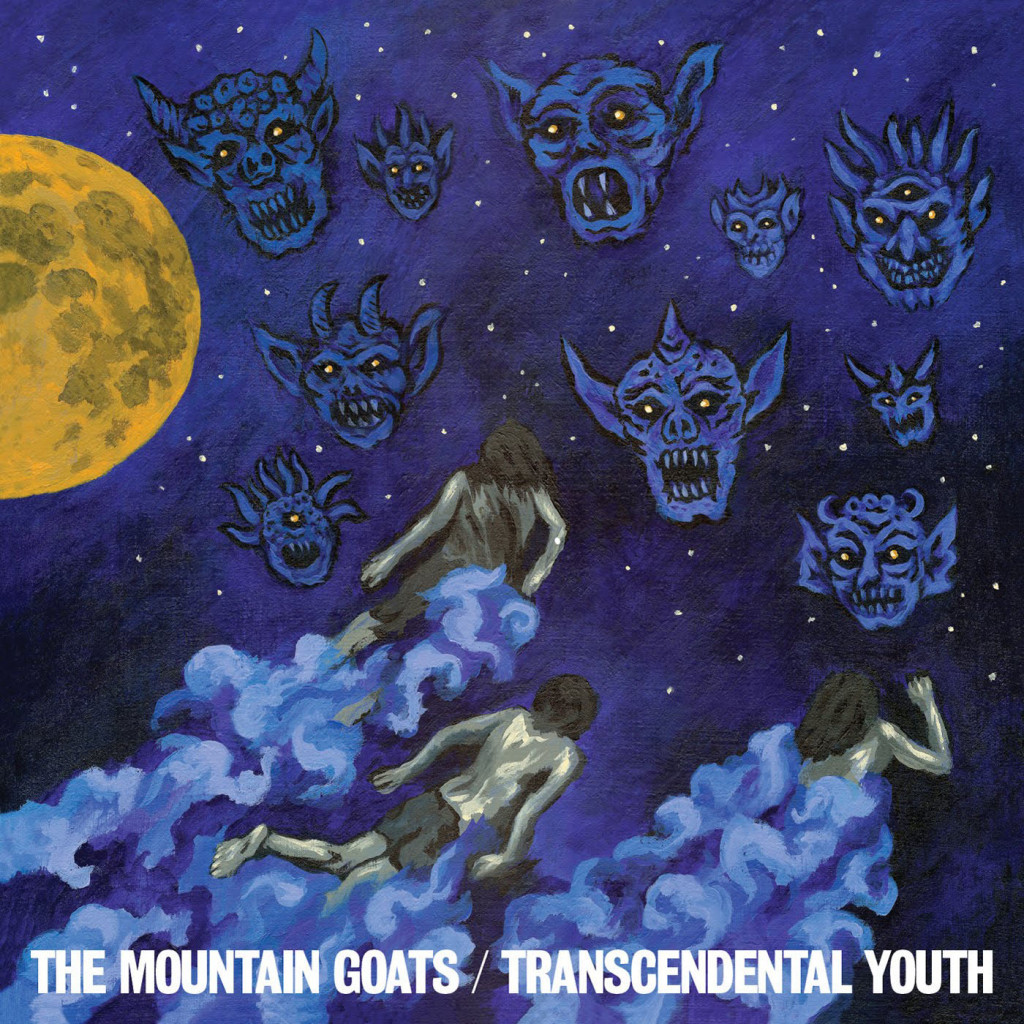By Sophie Isbister, Staff Writer
4/5
A new Mountain Goats album—in this case, this week’s release of Transcendental Youth—is like a bathtub you want to lay in, turn the water on to a trickle, and feel the warmth patiently rise up to your neck, engulfing you in a body temperature wholeness from which you have no desire to escape.
At least that’s how I feel as I grapple with the challenge of reviewing The Mountain Goats’ 14th full-length album (their second on Merge records). I won’t be coy; let me make it perfectly clear that I love this album. Darnielle blogged about the making of this album a while back, holding his newborn baby in one arm while creating melodies on the piano with the other. There’s a resulting tenderness in the music on Youth, which belies the not-so-soft meaning of the album. Darnielle says in his blog, about parenting and songwriting:
“[W]hat am I going to do, suddenly start writing songs about cute things instead of songs about how to wrest cries of triumph from the screaming places?”
Transcendental Youth proves this statement true and shows that fatherhood hasn’t changed Darnielle’s spare-yet-vivid lyricism one bit.
[quote]The album is for people like us: Pacific Northwesterners caught in cities like Seattle, Vancouver, or Portland. Cities of gloom, of trees, of perpetual umbrellas, stunted snow banks, and dreary drizzle. [/quote]
As a concept, the album works perfectly. Songs like “Cry for Judas” and “The Diaz Brothers” have great standalone potential and a solid rock sound, whereas other tracks, like the title track and “White Cedar,” have a more contemplative and mellow feel.
The album is for people like us: Pacific Northwesterners caught in cities like Seattle, Vancouver, or Portland. Cities of gloom, of trees, of perpetual umbrellas, stunted snow banks, and dreary drizzle. Darnielle heard the voice of a person like that and wrote an album for him, for the person struggling to stay afloat, but always seeking hope.
Maybe parenthood has made him harder; made him dig deep and tackle the very internal and personal concepts that make us human, and make us yearn to foster and grow another human.


